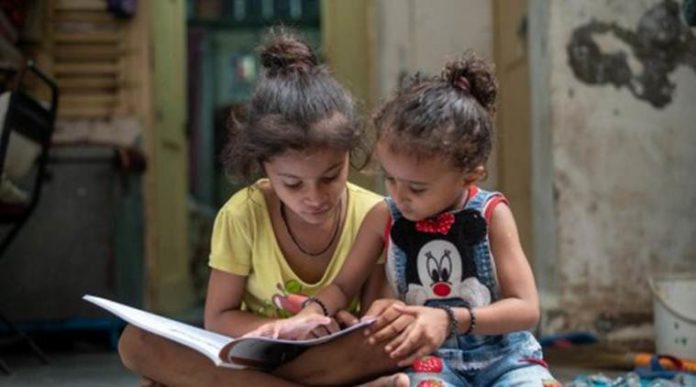New Delhi (NVI): Digital divide, rising poverty levels, child marriage and child labour are among the major challenges faced by children in India amid the Covid-19 pandemic, child rights experts noted in an online session organised by UNICEF.
Ahead of World Children’s Day on Friday, child rights experts, in an online session Monaday, highlighted the need to understand the full impact and invest more time, resources and efforts to protect the world’s youngest citizens from impact and the crisis.
The online media panel discussion was organized in partnership with the Foreign Correspondents Club of South Asia (FCC).
The session titled “Impact of COVID-19 Crisis on the Lives of Children in India,” drew attention to children’s health, their protection and on the learning crisis, to ‘reimagine’ a more sustainable, safer world for children post COVID.
During the session, Dr Dhir Jhingran, Founder Director, Language and Learning Foundation, focused on the impact the digital divide has had on children, particularly when only a quarter of households (24 per cent) in India have access to the internet and there is a large rural-urban and gender divide.
“Beyond the internet accessibility, the poorest students in remote areas and girls do not have access to smartphones. Marginalized children are paying the heaviest price as millions of young people are not able to access remote learning during school shutdowns,” Dr Jhingran said while calling for “reimagining” for reopening of schools.
“Safe re-opening of schools presents an opportunity to ‘build back better’ – by investing in equitable, quality education and skills development to ensure a whole generation of children and young people is not left behind,” he said.
“Safe re-opening also includes looking at the psychosocial wellbeing of children when they join back as well as assessing the learning/revision needs of children as they enter new grades,” he added.
Delivering the keynote address, Dr Yasmin Ali Haque, UNICEF India Representative, said, “The COVID-19 pandemic has unfolded as a child rights crisis. Through rising poverty and inequality, the pandemic has upended essential services that protect health, education and safety of children and young people. We need to adopt a whole of society child-centric
approach as the costs of the pandemic on children are immediate and can persist for years, if not addressed.”
Referring to the health crisis, the UNICEF India Representative said, “We know that health systems are strained by the COVID -19 pandemic, however we must not allow our fight against one deadly disease to come at the expense of our fight against other preventable diseases. This means ensuring the continuity of immunization services to prevent all vaccine-preventable diseases, even as we address the growing COVID-19 pandemic.”
UNICEF also shared the results of Wave-2, a Community Based Monitoring (CBM) Mechanism on socio-economic impact of COVID pandemic on marginalized populations during the period August–September 2020.
-ARK








